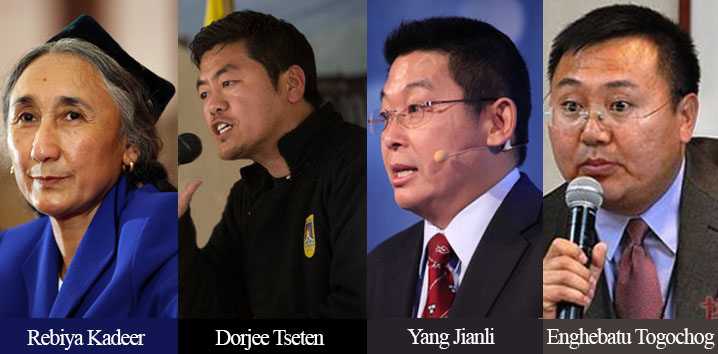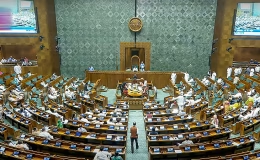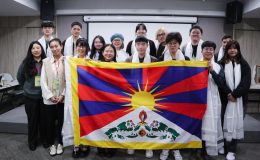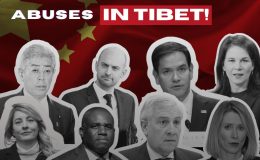Press Contacts:
Dorjee Tseten: [Tibetan, English] +91 9882511636
Yang Jianli: [Chinese, English]+1 (857)472-9039
Dolkun Isa (Rebiya Kadeer contact): [Uyghur, German, English] +49 89 54321999
Enghebatu Togochog: [Mongolian, English] +1 (917) 698-4367
10 December 2016
In 2016, for those under China’s rule, freedoms have continued on a steep downward spiral.
2016 has been a year of tumultuous, global social injustices and human rights violations. From Syria to Brazil, Russia to Burundi, governments around the world have openly broken fundamental, international laws that exist to protect the freedoms of people around the world, and give them justice. For those living under China’s rule human rights conditions have continued on a steep downward spiral.
Human rights defenders in China remain casualties of the State’s aggressive campaign against peaceful dissent, underling a direct contradiction with President Xi’s vow to promote the “rule of law.”
In the past 12 months the Chinese regime has rounded up hundreds of human rights defenders in an unprecedented, indefensible crackdown against lawyers and activists; has flagrantly disregarded religious freedoms by implementing a ban on fasting during Ramadan in East Turkestan, and forcefully evicted thousands of Tibetan monks and nuns from their homes at Larung Gar in eastern Tibet. The Party has enforced draconian surveillance laws and systematic, long-term security measures as part of an intensified agenda based on controlling dissent, and undertaken strict regulation and confiscation of passports to Uyghurs and Tibetans further limiting the ability to travel freely. During 2016, China has continued with plans to extinguish the traditional nomadic way of life in occupied Tibet, East Turkestan and Southern Mongolia, where the traditional way of life of thousands of nomads and herders is additionally threatened by environmental destruction wrought by Chinese mining companies and People’s Liberation Army (PLA) military bases.
On 8 December a Tibetan set their body on fire in protest against the deplorable situation in Tibet under China’s oppressive rule; since 2009 there have been at least 144 self immolations in Tibet, a vast majority of whom have called for freedom in Tibet and the return of the Dalai Lama.
As Tibetans, Uyghurs, Southern Mongolians and Chinese in exile we join together this Human Rights Day in solidarity to support and champion those who continue to resist Beijing and to push for gains in their, and our, human rights. More than 70 years of hard work and human progress (in rights protection) are at risk. We wholeheartedly urge governments around the world to do more, and to do it now.
In today’s global community there is no room for bystanders, especially among governments with strong economic and diplomatic relations with China. We ask you to stand on the right side of history by publicly supporting the Tibetans, Uyghurs, Southern Mongolians, Chinese and people of Hong Kong who are putting their lives on the line daily to defend principles of human rights recognized by all nations. Governments must not remain silent but must champion the bravery of the oppressed, not just with lip-service, but with strong, coordinated diplomatic pressure.
We also pay special tribute on this day to China’s jailed Nobel Laureate Liu Xiaobo, the Chinese literary critic, professor, and human rights activist charged with “incitement of subversion of state power,” and serving a sentenced to 11 years in prison; remember the thousands of Tibetan human rights defenders and political prisoners including Tashi Wangchuk, an advocate for greater Tibetan language education in schools in Tibet who has been detained and charged with “inciting separatism”and could face up to 15 years in prison; Ilham Tohti, the renowned Uyghur intellectual who worked for two decades to foster dialogue and understanding between Uyghurs and Han Chinese, and who is serving a life sentences charged with “separatism”, and Southern Mongolian activist Hada who served a total imprisonment of 19 years and was repeatedly tortured in detention and despite his physical release from prison, remains under house arrest.
Our collective message on this Human Rights Day to China’s rulers and to global change-makers is that no amount of oppression will extinguish the aspirations of our people – Chinese, Tibetan, Uyghurs and Southern Mongolians – to in future years celebrate this day in freedom.
Signed:
Dorjee Tseten, International Tibet Network, Students for a Free Tibet | @Dotseten
Yang Jianli, Initiatives for China | @yangjianli001
Rebiya Kadeer, World Uyghur Congress | @UyghurCongress
Enghebatu Togochog, Southern Mongolian Human Rights Information Center (SMHRIC)
Biographies
Mr. Dorjee Tseten is the Co-Chair of the International Tibet Network and the Asia Director of the Students for a Free Tibet. He was recently elected as a Member of the 16th Tibetan Parliament-in-Exile.
Mr. Yang Jianli is a leader of China’s democracy movement and President of Initiatives for China. He has been involved in the pro-democracy movement in China since the 1980s and was forced to flee China in 1989 after the Tiananmen Square massacre. He spent 5 years in a Chinese prison between 2002 and 2007 after travelling to China on a friend’s passport to investigate labour unrest. He has met with His Holiness the Dalai Lama on many occasions.
Ms. Rebiya Kadeer is the leader of the Uyghur Democracy Movement and President of the World Uyghur Congress. An activist and businesswoman, she was imprisoned from 2000 – 2005 for her relentless political and human rights activism and now lives in exile in the United States. She’s been awarded the Rafto Prize for Human Rights and in 2012 was included in the list of ‘500 Most Influential Muslims’.
Mr. Enghebatu Togochog is the Director of the Southern Mongolian Human Rights Information Center (SMHRIC), a New York based human rights organization dedicated to to protection and promotion of the rights of Mongolian people in Southern Mongolia.
#30#





